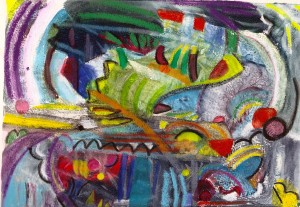Remembering as an active reconstruction process
Of course our memories are often inaccurate reports of past events. Distortions in memory have often been the subject of study both in the laboratory as well as in the field (in the real world). An example of this type of research can be seen in the work of the psychologist Elizabeth Loftus who studied common errors in memory in eye witness testimonies in and outside the courtroom.
Why would we expect remembered events to be an accurate reflection of past experience? Remembering is an ACTIVE reconstruction process in which events in memory are reactivated in a specific context and filtered and interpreted through the lenses of networks of knowledge that are relevant to what is being remembered. There is no such thing as pure remembering or remembering without the filters that can add, subtract, distort, what is in memory. Active reconstruction in remembering is evident not only for conscious remembering but also for the kind of remembering that is unconscious, or outside of our awareness.
All of this may be obvious to the reader but nevertheless has huge implications for how our past shapes how we interpret the world and project who we are in the present and future. More about this later.
